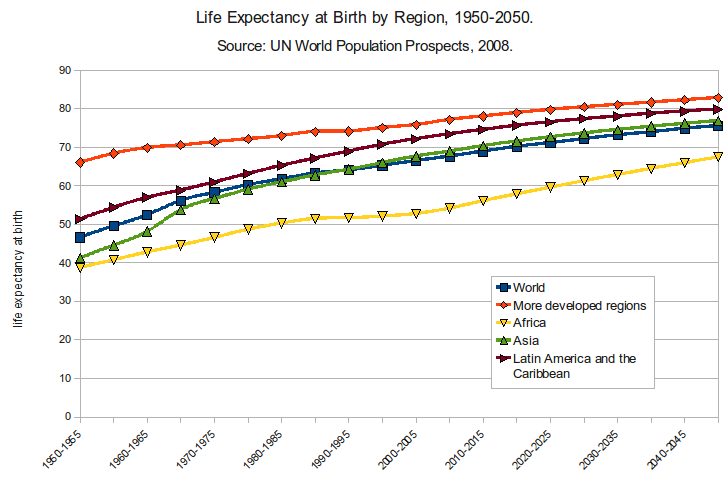Literature is filled with stories of people living hundreds, even thousands of years, yet for much of recorded history, a person was considered lucky if they reached the age of fifty. Someone living in the United States during the beginning of the 20th century was expected to live a paltry forty-seven years.
Part of the reason life expectancy rates are many times improved from that of our ancestors has to do with infant mortality and how it affects data. Understanding that the chances of a child surviving were slim, many of our forebearers opted for large families.
More children, of course, equaled more deaths, as medicine could not yet help children who were born too early, experienced complications at birth, or were exposed to illnesses from which many children today are protected by vaccinations.

The average life expectancy today for someone living in the United States of America is about 78.6 years. While a few lucky individuals in the past could reach this age, it wasn’t nearly as common as it is today, and certainly wasn’t expected.
Today, not only do people expect to experience their 70s, but many expect to do so in relatively good health, living by themselves in an independence that would have been unheard of just a few generations earlier.

Scientists are still not too sure about what causes people to live longer lives. It might be expected that advances in medicine and vaccines would dramatically alter life expectancy rates, but there are no such sudden leaps evident in research. Instead, the progression towards a longer life has simply gradually increased over time.
Even research into the lifestyles of our grandparents and great-grandparents yields little information; some smoked and drank for much of their lives, ate plenty of red meat, and yet lived well into their nineties. Others, of course, didn’t. Then, too, some families appear more susceptible to arterial problems and cancer, while others have avoided them.

It is estimated that since the beginning of the 20th century, human mortality in developed countries has risen such that each year, the average life expectancy rose three months higher than the previous year.
This is despite two world wars, numerous infectious outbreaks, and a changing climate. Human lifespan has been predicted to progress steadily, with 80 and 90 years of age becoming common in the middle of the current century…that is, until recently.
Mysterious Ancient Societies That Disappeared
The past few years have actually seen a decline in life expectancy among people living in the United States, albeit a small one, and it has been noted that the U.S. has the highest mortality rate in the developed world for pregnant mothers and newborn children. Rates of death from heart disease, suicide, and drug-related deaths have also increased and show no signs of slowing.
Even if these problems were addressed, humans might still have what is termed a “maximum species lifespan” by scientists. This would mean that even if conditions were optimal, people might only be able to live as long as 122 years, the longest in recorded history that can be verified.

If it’s quality, not quantity you’re after, you may be in luck: researchers at the Buck Institute are looking into ways to halt the process of aging at around 40 to 50 years of age. This means that the time you did have would be spent considerably healthier than if your aging proceeded as normal into your 80s.
This isn’t so far-fetched, as we know of several animals that already enjoy this slowed aging. Hydra don’t deteriorate with age, and the desert tortoise ages for only a short period before it lives out the rest of its life.

This is particularly relevant because, while a person living in the 1940s could expect to spend about 17 years of their life enjoying retirement, those retiring today can expect 22 years or more. A decrease in the effects of aging would mean less of the illnesses associated with old age, such as dementia, heart inflammation, osteoporosis, and arthritis. Less of these ill effects would mean that the need for nursing homes would decrease, and thus, possibly, the rising cost of healthcare to which older members of society are subjected to.
The research looks promising enough for Google to have invested a significant amount of money (billions, not millions) into the research. The company has founded the California Life Company to study aging and how it might be combated.

Others are following suit, such as the Mayo Clinic, the National Institute on Aging, and various state universities. The search for the fountain of youth has become the search for a pill that offers those same benefits.
Read another story from us: 3.95-Billion-year-old Rocks Show Oldest Evidence of Life on Earth
The Buck Institute is currently experimenting with the first drug to yield solid results, rapamycin, which in tests on mice has yielded longer lifespan and increased vitality in the older subjects. Human testing is still a long way off, however, so there’s no point rushing to your doctor for a prescription.
